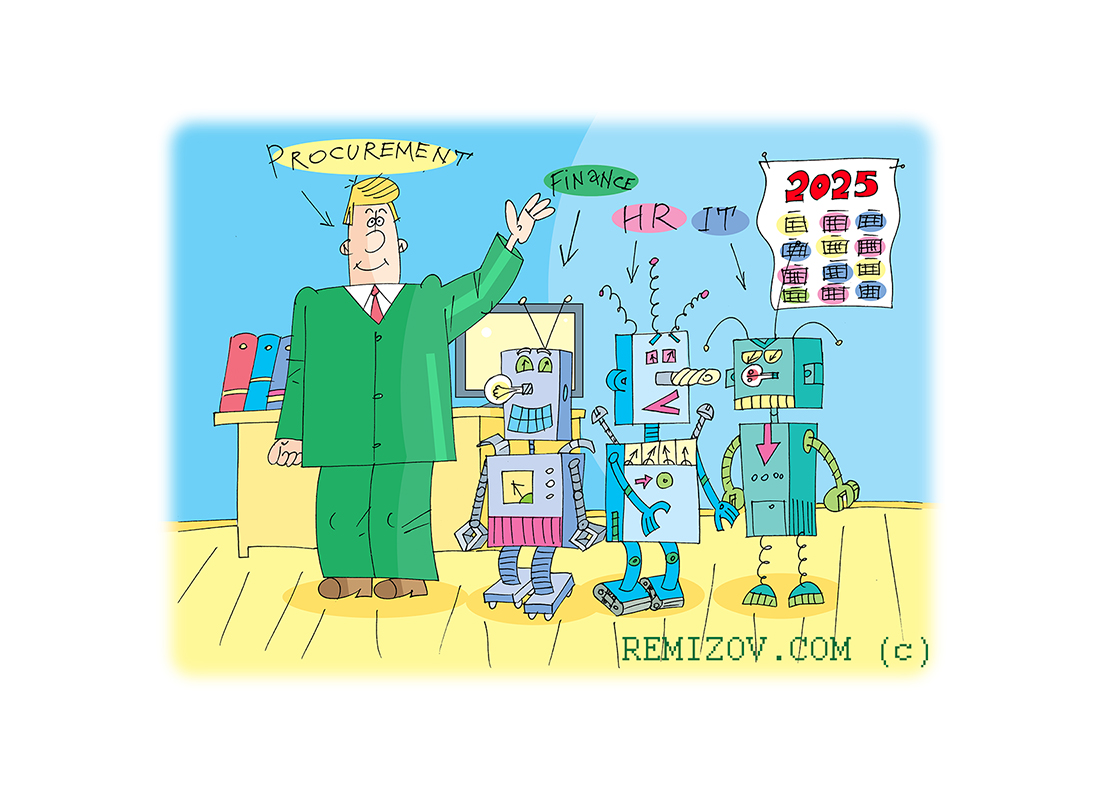Robots won’t steal our Procurement Jobs.
This post was inspired by multiple discussions I’ve seen online lately on how robots are stealing productivity from humans in such business support functions as Finance, HR, IT, Procurement, etc. I certainly don’t mean any Terminator-style machines, I’m talking about robo solutions that are to replace many business processes done by humans in the nearest future. For the past decade, robo transformation has been progressing in quantum leaps and the pace is accelerating. And you know what, Procurement is no “battlefild” for this robot vs. human dilemma and here is why.
Why do I care? I’ve been working in indirect procurement for more than 12 years so far and I see my future in this complex and engaging industry. Witnessing the robust digitalisation in many areas and seeing significant skills and professions replaced by automated solutions, we can’t help by thinking about the future of Procurement and our future role in Procurement.
Why do I believe that Procurement is outside the “robo-risk zone”? Going digital is our mantra of the day and the future of Procurement definitely follows that direction. But what does it mean? I think, it means automation of existing bureaucratic processes through the adoption of efficient digital solutions. I studied numerous case studies. Mainly procurement processes were built during late 1990s – early 2000s. And since then, only individual parts (functions) were transformed (e.g. becoming more regulated or simplified), added or eliminated. According to the recent report by Deloitte, every procurement professional supports the idea that the general structure needs to be digitized and simplified. There are companies in the market whose Procurement function is perceived by many CPOs as an example of the distant future. So, making as many processes as possible digital we’ll achieve exceptional excellence, speed and transparency that will result in lower prices and less resources consumed, still, automation won’t deliver even the minor part of the function’s essence. It’s like making coffee: it used to be a process expressed in labour costs, now, with coffee machines, it’s automated, however, the essence of coffee does and will remain unchanged.
In future, Procurement will remain a function that gravitates toward research and not regulated processes. Even in our wildest fantasies, it’s hard to imagine a digital solution that can replace a Procurement professional looking not for a best price but for a best supplier able to provide now what company needs tomorrow at low cost and in little time. Right?
Can Procurement help robots? Yes, yes, yes! Supporting the business is about choosing the right suppliers that can provide the right tools. And sometimes it’s not enough to find the right supplier, Procurement needs to convince business of the need for change and act as a partner along the way.
Robotised future: a threat or an opportunity? According to a research run by Forrester in 2016, robotisation will result in 7% jobs cut by 2025 and elimination of certain jobs for humans. On the other hand, it will create requirements for brand new skills and jobs.
To sum it up. I believe, conceptually indirect procurement is not subject to the risk of replacement by robots in any foreseeable future. The value of supplier management is bound to grow, given that one of the key requirements of the future business robo efficiency (applicable both to data and resources) is the ease of integration, insights potential and scaling capabilities, and suppliers will have to meet those requirements. And the right supplier management can deliver that so that business could deliver better for its clients.
@olegremizov
12-05-2017
This article is also placed on my LinkedIn Blog.
